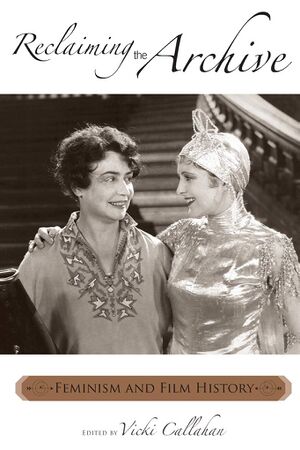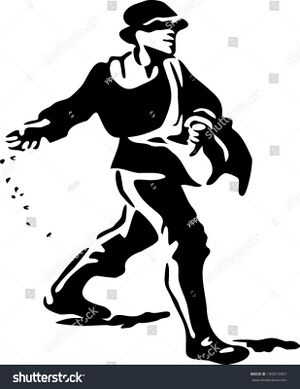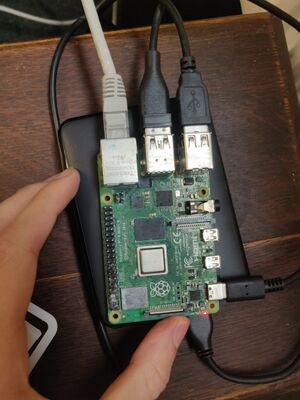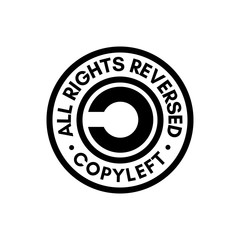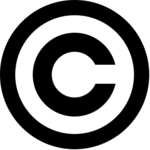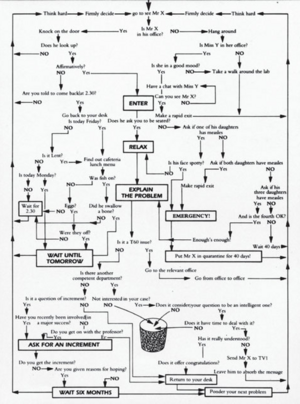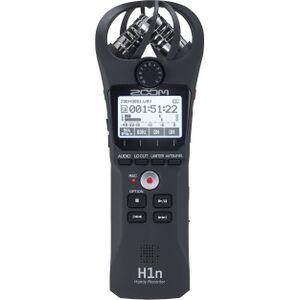Wordhole
Back to base: https://pad.xpub.nl/p/Wed-11-Oct23
This page contains a glossary created in the XPUB 2023-2024 Special Issue 'Protocols for an Active Archive'.
Accessibility
Analog
Archive
Websters Dictionary :
1: a place in which public records or historical materials (such as documents) are preserved an archive of historical manuscripts also : the material preserved —often used in plural: "reading through the archives"
2: a repository or collection especially of information as verb: "She archived her e-mail messages in a folder on her hard drive."
Application (how we use it)
There has not yet been a shared definition of what an archive is, but datasets, libraries and collections have been mentioned in correlation to it.
See: ARCHIVE FEVER: A FREUDIAN IMPRESSION by JACQUES DERRIDA https://sites.duke.edu/vms565s_01_f2014/files/2014/08/DerridaPrenowitz1995fragment.pdf
Sample Word
Active Archive
Annotation
Aporee
Audacity
1. A willingness to take bold risks.
2. The name of a software package which records sound and manipulates sound recordings.
Application (as used by us)
to make recordings for Worm radio broadcasts
See also: field recording
Authorship
Brainstorming
Definition
A technique that involves the spontaneous exchange of ideas from members of the group to find a conclusion for a specific problem.
Application (as used by us)
How do we brainstorm:
- Visualizing our goal
- Documenting the discussion
- Thinking aloud
- Encouraging every idea
- Collaborating instead of criticizing
- Asking questions
See also: Visual mapping
Breakfast lab
Broadcasting
Oxford Dictionary: /ˈbrɔːdˌkɑːstɪŋ/
noun
1. the transmission of programmes or information by radio or television. "the state monopoly on broadcasting"
Control Societies
NOTE: This entry is TRANSCLUDED
Gilles Deleuze discusses the concept of a society of control in his 1992 text 'Postscript on the Societies of Control'. Societies of control are governed by codes, which give access or bar individuals from flows of information, at "informational intersections" and, as a result, the subject flows “in a continuous network.” Deleuze contrasts control societies with disciplinary societies, as theorised by Foucault, which are governed by the control of discreetly defined spaces through the execution of social protocols. However, control societes, Deleuze argues, are distinct from disciplinary societies (as theorised by Michel Foucault) but in connection to them, as their immediate development after WWII. Control societies are reforming the institutions of disciplinary societies, including prisons, hospitals and schools, but one can go further and think of how eg. genetic engineering or pharmaceutical research is conducted. Reflecting on Foucalt's analysis of disciplinary societies, Deleuze reminds us that subjects in disciplinary societies are constituted on the basis of two axes: 'number' and 'signature', and are tangible and clearly witnesses in our society. These organising principles are of less importance within control societies and instead codes are implemented. Such codes govern who can access what. This is especially evident not only in the end-barrier but in the systems of tracking and actual control that defines whether one qualifies to cross a barrier. Some methods of control, that could have been borrowed from previous societies of sovereignty, are becoming interchangeable. At the time the essay was written, Deleuze could already perceive a crisis of the institutions as new mechanism of controls were being installed and implemented in different types of systems: school, prison, hospital and corporate. The question that arose was how unions would survive the advent of new, harmful forms of societies of control.
Application (as used by us)
Collective Annotation of Postscript on the Societies of Control: https://pad.xpub.nl/p/PostscriptControlSocieties
Subgroup Annotation of Postscript on the Societies of Control: https://pad.xpub.nl/p/Deleuze_Control_Group
Citation: Mentioned in: Deleuze, G., Postscript on the Societies of Control (1992)
Chop Chop
NOTE: This entry is TRANSCLUDED
Definition by Wikipedia
"Chop chop" is a phrase first noted in the interaction between Cantonese and English people in British-occupied south China. It spread through Chinese workers at sea and was adopted by British seamen. "Chop chop" means "hurry" and suggests that something should be done now and without delay.
Ref: https://en.wikipedia.org/wiki/Chop_chop_(phrase)
Definition by XPUB Chop Chop is the name we have chosen for our dear Raspberry Pi. This is because we want our server to be quick and do what we want it to do. Chop-chop!!
To discover the contents of Chop Chop go to https://hub.xpub.nl/chopchop/
See also SSH
Code
Oxford dictionary: /kəʊd/noun
1.a system of words, letters, figures, or symbols used to represent others, especially for the purposes of secrecy. "the Americans cracked their diplomatic code"
2. COMPUTING: program instructions.
Copyleft
Copyright
Collaborative
Communication
The word "communication" has its root in the Latin verb "communicare", which means "to share" or "to make common". Communication is usually understood as the transmission of information.
The evolution of human communication took place over a long period of time. Humans evolved from simple hand gestures to the use of spoken language. Most face-to-face communication requires visually reading and following along with the other person, offering gestures in reply, and maintaining eye contact throughout the interaction.
CSS
CSS (or Cascading Style Sheets) is a programming language used to change the styling (color, typography, layout, etc.etc... the limits are almost endless) of web content, by referencing HTML elements using various CSS selectors. Additionally to HTML, CSS specs are maintained my the W3C, but implementation of these specs can deffer per browser (looking at you, Internet explorer).
Example of CSS
body, .bg--red, a:hover {
background-color: red;
}
In this example, the selector selects the <body> element, and any element with the class bg--red, and every link that has a pseudo class of "hover" (mouse over element). The changed property is the background-color of these elements, with a value of red.
Examples of websites that use CSS
Images and links
- CanIUse to check if your CSS property can be used in a specific browser
- W3 specs for CSS
- HTML & CSS; Design & build website by Jon Duckett
See also
Consent
Data
Death of the Author
Text by Roland Barthes, published in 1967. Barthes claims here that the meaning of a text is given not by the author but by the reader. It belongs to a school of literary theory criticism called reader-response criticism with applications not only in literature but in fields such as psychology and philosophy.
Citations
The text has been extensively citated and not always in a good way, as eg. in Jacques Derrida's ironic essay "The Deaths of Roland Barthes".
In context
One of the most well-known applications of this text is critical pedagogy, advocating dialogic learning (letting students arrive to their own conclusions, rather than being fed the meaning of a text).
How we use it
Listen to Xpub reading of Barthes' text
Essay by Roland Barthes, published in 1967. Barthes claims here that the meaning of a text is given not by the author but by the reader. It belongs to a school of literary theory and criticism called reader-response criticism with applications not only in literature but in fields such as psychology and philosophy.
Citations
The text has been extensively cited and not always in a good way, as eg. in Jacques Derrida's ironic essay "The Deaths of Roland Barthes".
In context
One of the most well-known applications of this text is in critical pedagogy, advocating dialogic learning (letting students arrive to their own conclusions, rather than being fed the meaning of a text).
Deconstruction
Definition
1. "Deconstruction challenges the way we interpret meaning. It identifies the central meaning and marginalized meaning of a work, changes the positions of those meanings, and therefore shows that the marginalized meaning could just as easily become the central meaning. In this way, meaning is shown to be unstable."
2. Deconstruction is a form of textual analysis. Deconstruction implies "breaking down" something to discover its true significance and create new meanings.
Application (as used by us)
- Deconstruction in critical thinking can be used to find something new by breaking the text or taking a concept to pieces. Firstly we deconstruct the archive to be able to activate it. It can generate new meanings through the interpretation, analysis, discussion.
- Decontruction can be used as a form of critique
Application in other contexts (examples) Why does Derrida refuse to define deconstruction? Derrida writes, there is nothing that could be said to be essential to deconstruction in its differential relations with other words. In other words, deconstruction has to be understood in context. This kind of fluidity also prevents the possibility of defining deconstruction.
In context Friendrich Nietzsche - there are no facts, only interpretations
Decision making process
Digital
Digital is the representation of physical items or activities through binary code. When used as an adjective, it describes the dominant use of the latest digital technologies to improve organizational processes, improve interactions between people, organizations and things, or make new business models possible. The word digital comes from Latin digitus = finger, which refers to the bit yes/no structure of the information - the finger is either up or down.
Link: https://www.gartner.com/en/information-technology/glossary/digital-2 https://www.oed.com/dictionary/digital_n?tab=meaning_and_use#6774585
Digital(post)
Disciplinary Societies
NOTE: This entry is TRANSCLUDED
According to Michel Foucault, disciplinary societies are characterized by a constant passage from closed structure to closed structure, namely from the family to the school to the factory etc. The idea behind a disciplinary society is to group and organize individuals for a more effective distribution of labor.
In Discipline and Punish, Foucault traces the introduction of prisons into society; the movement away from public executions towards carceral systems and several implications of these historical changes. Discipline is closely connected to increasing bureaucracy and the development of biopolitics.
Foucault doesn't fail to mention the way disciplinary societies indirectly shape mentalities that work around their structure, and how rites are developed to protect a sense of self and a sense of pride through niche, anti-authoritarian communities.
Steve's notes on the difference between disciplinary and control societies:
"In Foucault disciplinary society is governed by ‘precepts’ (“texts” establishing protocols of behavior, discipline and social organization) which govern spaces. Society organized through capsularity (sic?): in which specific spaces have specific functions and specific "means of correct training". “In the disciplinary societies one was always starting again (from school to the barracks, from the barracks to the factory)” Each space has its own discourse (specialist language) which regulates them. In Foucault’s discipline society the subject internalizes discipline (becomes subject to the discourse of a given space) in which case re-form is the model (the subject under discipline is re-formed). By contrast: societies of control are governed by code- which give access or bar individuals from flows of information (at "informational intersections"). The subject flows “in a continuous network.”
- Foucault Discipline and Punish
See also: Control Societies (Wordhole)
Distributive
Gilles Deleuze
French philosopher (1925-1995), engaged in metaphysics and epistemology, specifically in issues of identity and difference. He uses the term "virtual" to describe ideas as the conditions of the actual experience. He criticizes the notion of the individual (as he accepts difference as fundamental in all experience). One of his major works (together with Felix Guattari) is Capitalism and Schizophrenia (the title is pretty much self-explanatory).
Context
In his essay "Postscript on the Societies of Control" (1990) Deleuze marks the change in the structure of society and senses the importance of code in the new order.
Georges Perec
NOTE: This entry is TRANSCLUDED
Writer, filmmaker and documentalist (French, 1936-1982). Member of the Oulipo group, a group of writers seeking for patterns and structures that could be used for practicing constrained writing. One of his major projects was in effect producing and working with a writing algorithm, (also using flowcharts).
In context
An example of his practice can be seen in "The Machine". For the full experience, it can be best accompanied by its reading.
See also
Glossary
NOTE: This entry is TRANSCLUDED
Oxford: glossary/ˈɡlɒs(ə)ri/
noun
an alphabetical list of words relating to a specific subject, text, or dialect, with explanations; a brief dictionary. "a glossary of Inuktitut words"
Flowchart
NOTE: This entry is TRANSCLUDED
This is an entry for 'Flowchart' for the Wordhole Glossary.
Definitions
- A diagram of the sequence of movements or actions of people or things involved in a complex system or activity. (From Oxford Languages)
- '[A flowchart] consists of a certain number of propositions that can take either yes or no for an answer, each answer having certain consequences. The concatenation of causes and effects and the choice of answers are represented by arrows that are the only syntactic connectors between the propositions. In brief, it is a tree structure, a network, a labyrinth, and the “reader” chooses ONE route among all the possible routes, the totality of possible routes being presented SIMULTANEOUSLY on the flowchart.' (From Mainframe Experimentalism, chapter 2)
Application (as used by us)
Flowcharts have been used to present different questions about archives, see pad of 2023-10-10.
Mentioned in
Mainframe Experimentalism, chapter 2
In context
'A flowchart [...] shows simultaneously all the steps and the order of their recursion in a set of instructions. It also contains within it all the possible moves allowed by the algorithm.' (From Mainframe Experimentalism, chapter 2)
Images and links
The Art of Asking your Boss for a Raise
See also
George Perec, Graphviz
Graphviz
GREP
A command-line utility for searching in plain-text data sets for patterns (eg. for regular expressions). It can be a powerful tool (alone or even better along other commands, for finding and handling elements in a text or list.
In context
The function of this command-line is so important that it has entered the Oxford English Dictionary (2003) both as a verb and noun. (Famous phrase: "You can't grep dead trees", referring to physical data)
Useful Link
https://man7.org/linux/man-pages/man1/grep.1.html
Graphs
Fish
Have you tried turning it on and off again?
Note: This entry has been transcluded.
Definition from Wikipedia
Quote from the show The IT Crowd (2006–2013), a British comedy written by Graham Linehan. The comedy follows Jen, Moss, and Roy and their work in the IT department, based in the basement of Reynholm Industries.
The scene script it comes from:
Roy Trenneman: [picking up the phone] Hello, IT. Have you tried turning it off and on again? Uh... okay, well, the button on the side, is it glowing? Yeah, you need to turn it on... uh, the button turns it on... yeah, you do know how a button works don't you? No, not on clothes.
Definition (as used by xpub1)
A joke used while working with many different machines that may or may not include an on/off button. Not everyone is familiar with the origin of the joke, but it is commonly known as the most basic question asked in relation to working with technology/getting a machine to work. It has become a sort of meme, a cultural memory of working with technology.
Variations can include: Have you tried refreshing the page?, Have you tried turning it on and off again again?
Citation, Mentioned in
- Prototyping class with Manetta. Manetta (paraphrased): If your computer does not register the plotter, type in exit() to leave chiplotle, turn off and on the plotter, and run chiplotle again
- Colloquially it will be mentioned by everyone studying XPUB in one point or another
Images and links:
- https://www.youtube.com/watch?v=nn2FB1P_Mn8 (The scene from IT Crowd)
- https://knowyourmeme.com/photos/362738 Know your Meme archived image for Have you tried turning it on and off again?
See also: Pen Plotter
HTML
Homophily
Note: This entry has been transcluded.
Homophily is the assumption that "birds of a feather flock together". In sociology, it has been presented as a principle to express love of the same (or similar), it is rooted in the belief that people connect to similar individuals more frequently. However, in the text "Queering Homophily", written by Wendy Hui Kyong Chun, this belief is questioned and criticized. The author writes that homophily is used as the building block of network sciences, creating pathways that discriminate based on patterns of presumed similarity. This leads to detrimental consequences which standardize people into uniformity, connecting people into "neighbourhoods" of sameness, that promote lack of variety and monotony. Homophily, according to Chun, is used as an excuse to perpetuate racism, sexism and inequality, by posing it as a biological fact of human nature.
Interview
NOTE: This entry is TRANSCLUDED
a structured conversation where one participant asks questions, and the other provides answers. In common parlance, the word "interview" refers to a one-on-one conversation between an interviewer and an interviewee. The interviewer asks questions to which the interviewee responds, usually providing information. That information may be used or provided to other audiences immediately or later. Interviews can be unstructured, free-wheeling and open-ended conversations without predetermined plan or prearranged questions. Interviews can also be highly structured conversations in which specific questions occur in a specified order. They can follow diverse formats.
[Noun.]
1: a formal consultation usually to evaluate qualifications (as of a prospective student or employee)
2: a: a meeting at which information is obtained (as by a reporter, television commentator, or pollster) from a person b: a report or reproduction of information so obtained
[Verb.]
1. transitive : to question or talk with (someone) to get information : to conduct an interview with (someone)
2 .intransitive : to participate in an interview for a position (such as a job)
Link: https://en.wikipedia.org/wiki/Interview https://www.merriam-webster.com/dictionary/interview?src=search-dict-hed
Memory
Pad
NOTE: This entry is TRANSCLUDED
This is an entry for 'Pad' for the Wordhole Glossary.
Definition
- Shortening of '(an) EtherPad', an open source online editor providing real-time collaborative editing (From etherpad.org).
- A thick piece of soft material, typically used to protect or shape something, or to absorb liquid. (From Oxford Languages)
- The fleshy underpart of an animal's foot or of a human finger. (From Oxford Languages)
- Fill or cover (something) with soft material in order to protect it or its contents, make it more comfortable, or give it a particular shape. (From Oxford Languages)
- Lengthen a speech, piece of writing, etc. with unnecessary material. (From Oxford Languages)
Application (as used by us)
We often use EtherPads for collaborative work, note taking and documenting purposes. With 'a pad', we refer to any one pad. Never is 'pad' used in reference to the software EtherPad itself.
Application (other contexts)
The word 'pad' has seen multifunctional use, both as a verb and a noun, for centuries. The reference to 'EtherPad' is only more recent, with the software being launched in 2008.
In context
- 'Do we have a Pad of the Day?'
- 'Don't pad out your answer to make it seem impressive' (From Oxford Languages)
Images and links
- EtherPad website: https://etherpad.org/
- Main wiki entry on EtherPad: https://pzwiki.wdka.nl/mediadesign/Etherpad
- Wiki entry on the EtherPatches project: https://pzwiki.wdka.nl/mediadesign/EtherPatches
Pad of the Day
This is an entry for 'Pad of the Day' for the Wordhole Glossary.
Definition
- Used in reference to any specific day's associated main EtherPad.
Application (as used by us)
Most days, XPUB students use a day-specific EtherPad to work collaboratively, take notes, document their process, and more. On the associated day, any of these is referred to as 'the pad of the day'. Not to be be confused with any of the other (often many) pads that may be used that day, the pad of the day serves as the common thread throughout the day.
In context
- 'Where can I find a link to the Pad of the Day?'
Images and links
- Example of a Pad of the Day (2023-10-11): https://pad.xpub.nl/p/Wed-11-Oct23
- Example of a Pad of the Day gone wrong (2023-11-07)
See also
Performative
Definition from Sources (Merriam-Webster)
- relating to or marked by public, often artistic performance
- disapproving: made or done for show (as to bolster one's own image or make a positive impression on others)
- determined and reinforced by the repeated performance of socially prescribed acts and behaviors rather than by biological factors
- grammar: being or relating to an expression (such as a word or statement) that performs the act it specifies or that effects a transaction
Application (as used by us)
Application (In other contexts)
In How to do Things With Words. John Langshaw Austin introduces the idea of performative speech acts. Austin argues that to deliver a 'performative utterance' is to 'do something' rather than simply to report or 'state something' (Austin, 1975). Saying "I do" in the context of a wedding ceremony is an example of performative utterance given by Austin.
In Context
- 'Truly performative, [the artwork] simultaneously does something (it runs and produces output) and it states something (through both its output and its code)' (Ledesma, 2015, p.93).
- 'Codeworks can potentially be executed and thus become performative' (Arns, 2005, p.8).
Citation: Mentioned in:
- Austin, J.L. (1975) How to Do Things with Words: Second Edition. 2nd edition. Edited by J.O. Urmson and M. Sbisà. Cambridge, Mass: Harvard University Press.
- Arns, I. (2005) ‘Code as performative speech act’, Artnodes, 0(4). Available at: https://doi.org/10.7238/a.v0i4.727.
- Butler, J. (2006) Gender trouble: feminism and the subversion of identity. New York: Routledge (Routledge classics).
- Culler, J: Philosophy and Literature: The Fortunes of the Performative (2000) https://www.researchgate.net/publication/240740399_Philosophy_and_Literature_The_Fortunes_of_the_Performative
- Galloway, J. Protocol: How Control Exists After Decentralisation (2004) https://www.asounder.org/resources/galloway_protocol.pdf
- Ledesma, E. (2015) ‘The Poetics and Politics of Computer Code in Latin America: Codework, Code Art, and Live Coding’, Revista de Estudios Hispánicos, 49(1), pp. 91–120. Available at: https://doi.org/10.1353/rvs.2015.0016.
See also
Live Coding | Performance
Podcast
Prescriptive Technology
NOTE: This entry is TRANSCLUDED
The term is used in Ursula Franklin's lecture The Real World of Technology, in which "prescriptive technologies" oppose "holistic technologies".
Example: a form of "prescriptive technology" was used in Chinese bronze casting in 1200 BCE. The production required the skills of model makers, clay workers; metal workers, each of which had a specific set of tools and disciplines. This specialism represented a division of labour. Franklin makes the point that the workers naturalized their activities, so it was assumed there was only one procedure to make clay molds or work with metal.
Application (as used by us)
The “internalization” of a subject position (and of a discourse) engendered by prescriptive technology relates to Foucault's disciplinary societies and Deleuze's control societies. In a Marxist reading, "prescriptive technologies” operate at the level of ideology (they are disguised in plain sight).
Structurelessness
NOTE: This entry is TRANSCLUDED
Without structure
Application (as used by us)
The Tyranny of Structurelessness (1970-73) is a text by Jo Freeman
THE TYRANNY of STRUCTURELESSNESS (1970-73) is an article by Jo Freeman aka Joreen. The discussion of structureless in this article is based on the 'organizational form of the movement'. According to the text, "Structurelessness" is a natural response to an overly structured society, however it is organizationally impossible. Not only we can not decide whether to have a formally structured group, but also whether to have one that is structured or not. A structureless group does not exist, despite our desire to think otherwise. Any kind of group of people will eventually organize itself in some way if they come together for any kind of purpose.
The word structure is derived from the Latin structura, which means "a fitting together, building.". In a broader sense its anything put together. The relationships between family members make up a family's structure, and the way your muscles and bones fit together might be considered your body's structure.
It's a challenge to paraphrase something that doesn't seem to work nor make 'sense' because the idea of having no structure is more a theoretical ideology than it is something practical to realize (?), which makes it difficult to realize, because there will be a structure based on that there isn't a structure. So then a counter-structure (alternative) makes more sense than having no structure at all(!?!)
However, contrary to the concept, it has gone from being a concept to a tool for the elite to grab power.
Worm
NOTE: This entry is TRANSCLUDED
Definitions
noun 1. any of a number of creeping or burrowing invertebrate animals with long, slender soft bodies and no limbs.
verb 2. move with difficulty by crawling or wriggling. insinuate one's way into.
3. In the context of Xpub we would refer to the cultural space of Worm Rotterdam: WORM is the ultimate test environment for alternative art production, experimental ways of living and non-academic knowledge development. We are a network organisation at the intersection of (popular) culture and (performing) arts, fueled by an abiding interest in all the inspiring, beautiful, urgent, vital, raw, unruly and / or crazy shit that our fellow human beings come up with. We do not see the chaos that comes with it as a problem; rather we use it as energy for action.
Application
1. "eeew there is a worm in my apple!"
2. "I wormed my way along the roadside ditch"
3. "Hey wanna grab a drink at worm later, we can have look at the radio studio"
Links
Read more about Worm Rotterdam´s project here:
https://worm.org/about/organisatie/
Zoom Recorder
NOTE: This entry is TRANSCLUDED
A Zoom recorder is a field recorder produced by the brand Zoom. A field recorder is a piece of portable equipment used to capture ambient sound. A device that we (XPUB1) have used to record sounds around us, e.g. a morning at worm/field recordings used in the radio broadcast/interviews for the broadcast, etc.


